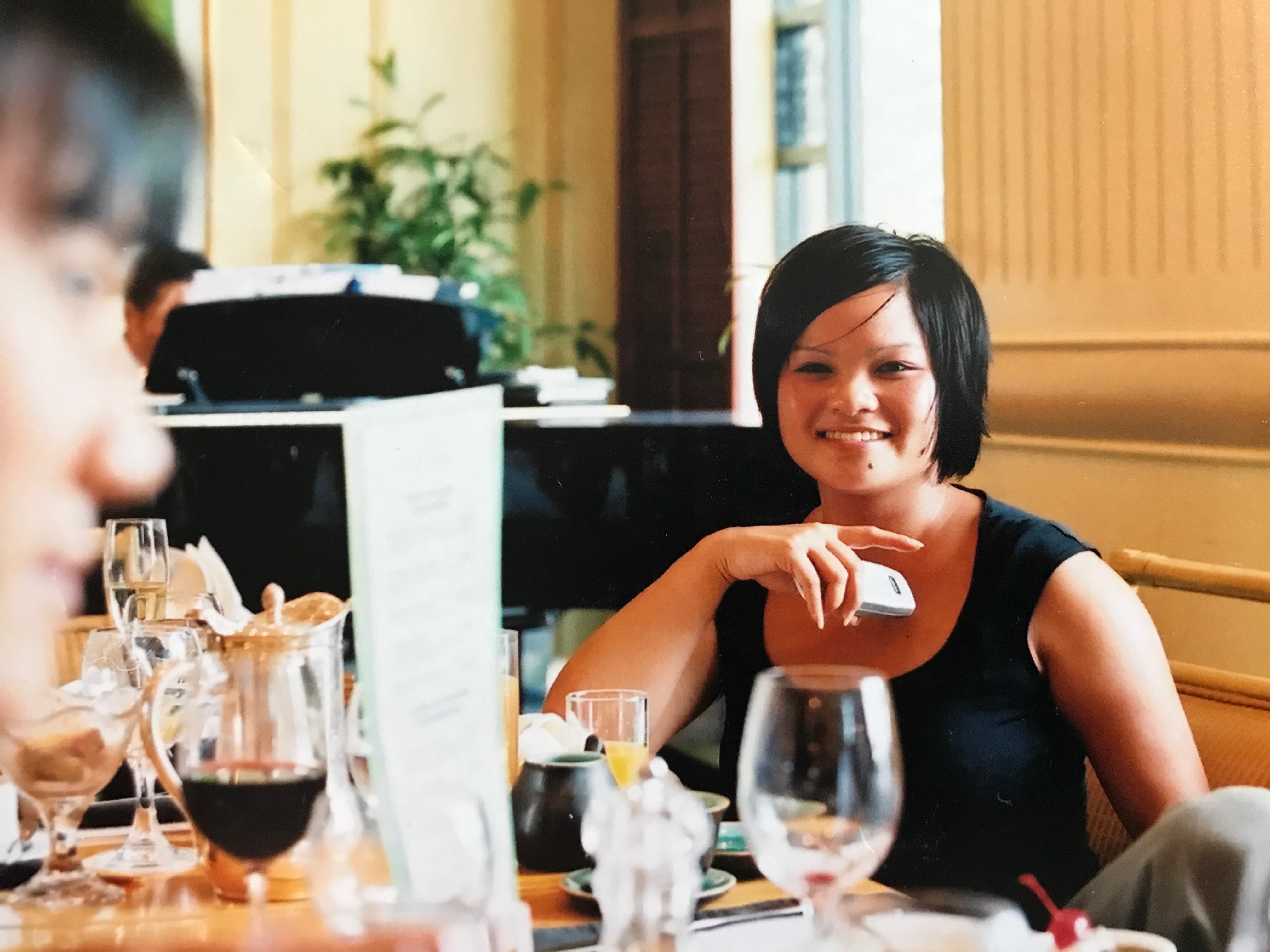Healing Through Writing
For World Refugee Day, alumna Christina Vo (MSc Social Psychology 2005) looks back on her family story. What inspired her to return to the country that her father fled from, and why did she decide to write her memoirs?
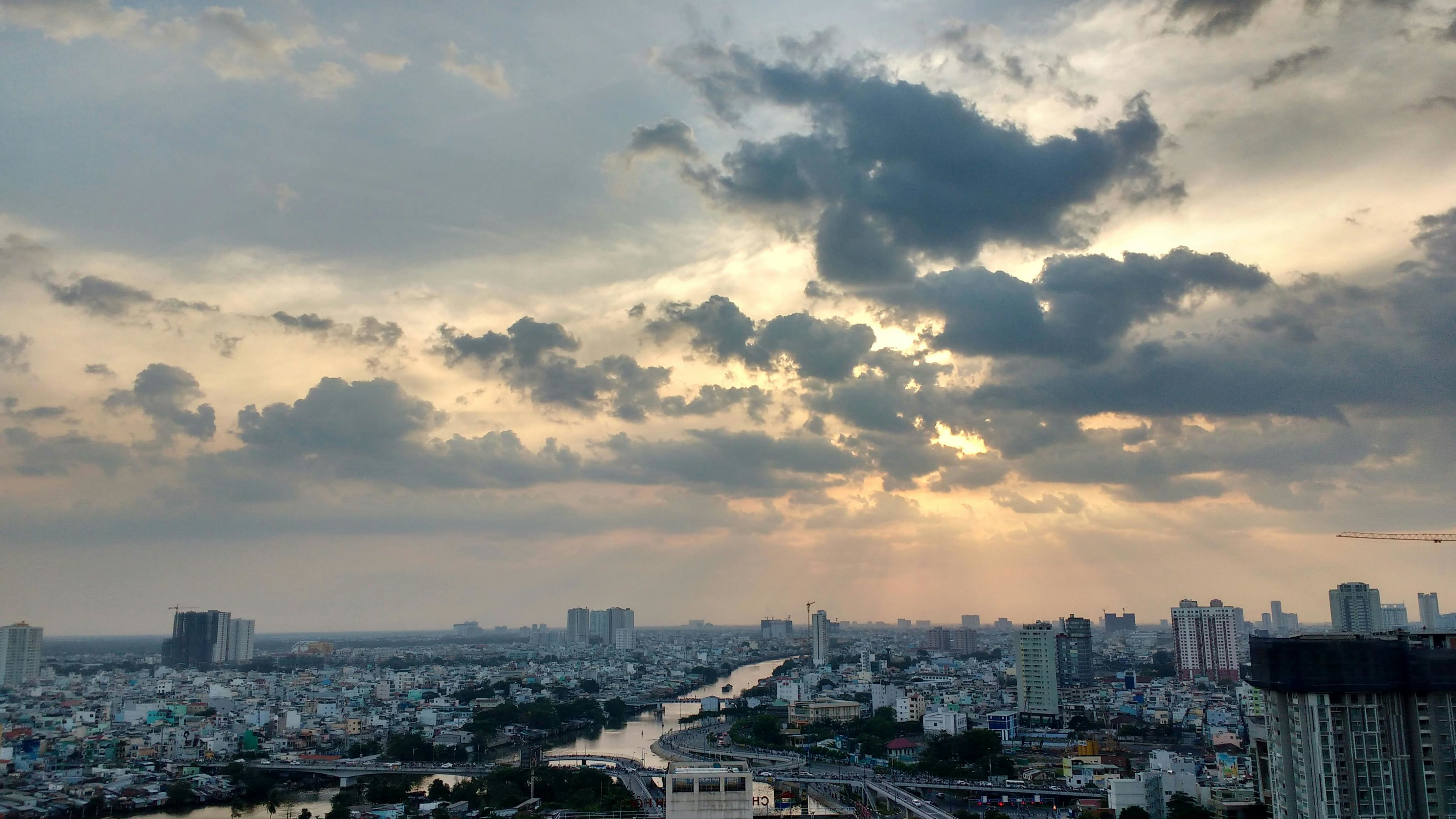
Alumna Christina Vo's parents fled Vietnam following the fall of Saigon in 1975. Born and raised in the USA, Christina found that, as she grew up, she wished to understand and connect with her family's heritage and history. This led to an international career that took her to Vietnam three times. Ruminating over her own experiences of Vietnam and her family's story, Christina was inspired to co-write a memoir with her father.
The Decision to Flee
My father, Nghia Vo, was born in Saigon, Vietnam, in 1947. He grew up there and in the coastal town of Vung Tau where his grandmother owned a longan orchard. He attended medical school in Saigon, where he met my mother. Later he was drafted into the Army of the Republic of Vietnam (ARVIN) to serve as a medical doctor. He was stationed in the Mekong Delta and was transferred to Phu Quoc Island right before the end of the war.
When North Vietnam seized Saigon, my father felt he had to flee because he did not want to live under the communist regime. For many individuals, staying in Vietnam would have meant being sent to a re-education camp for an undetermined period. My father wanted to find peace and be free, so he had to flee Vietnam.
When Saigon fell on 30 April 1975, there were already boats lined up waiting to help evacuate Vietnamese refugees from Phu Quoc Island. The first boat my father was on brought them to a refugee camp on Guam, and from there, many refugees were transferred to camps in the United States. My father arrived in Harrisburg, Pennsylvania where he found a position at a small hospital. There he could began the path to becoming a certified doctor in the United States. A year later, my mother arrived in the States.
The fleet of big and small craft planned to continue taking refugees at Phu Quoc and Con Son Islands in the Gulf of Thailand. According to the radio messages 100,000 people have been evacuated so far.
Kent Evening Post, Wednesday 30 April 1975
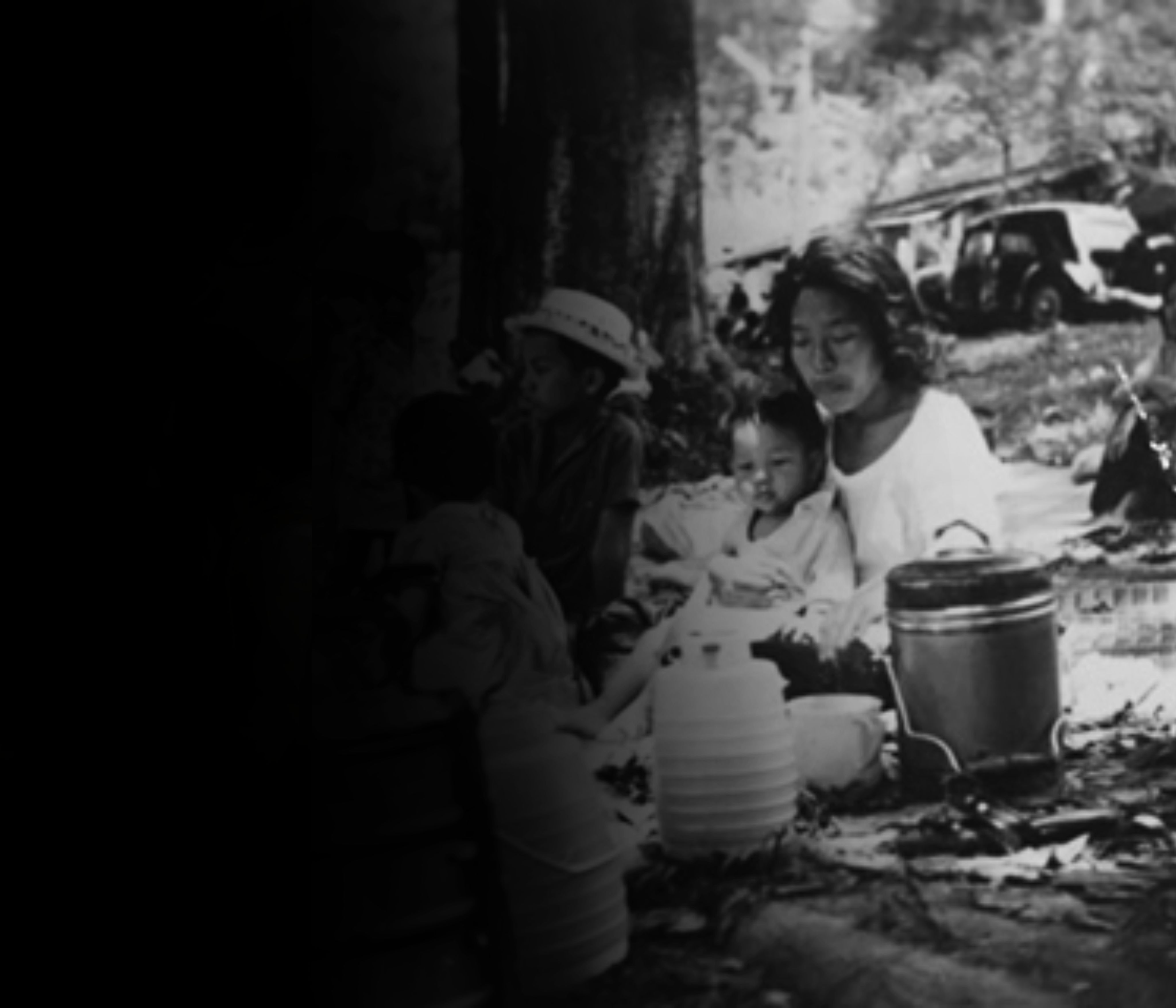
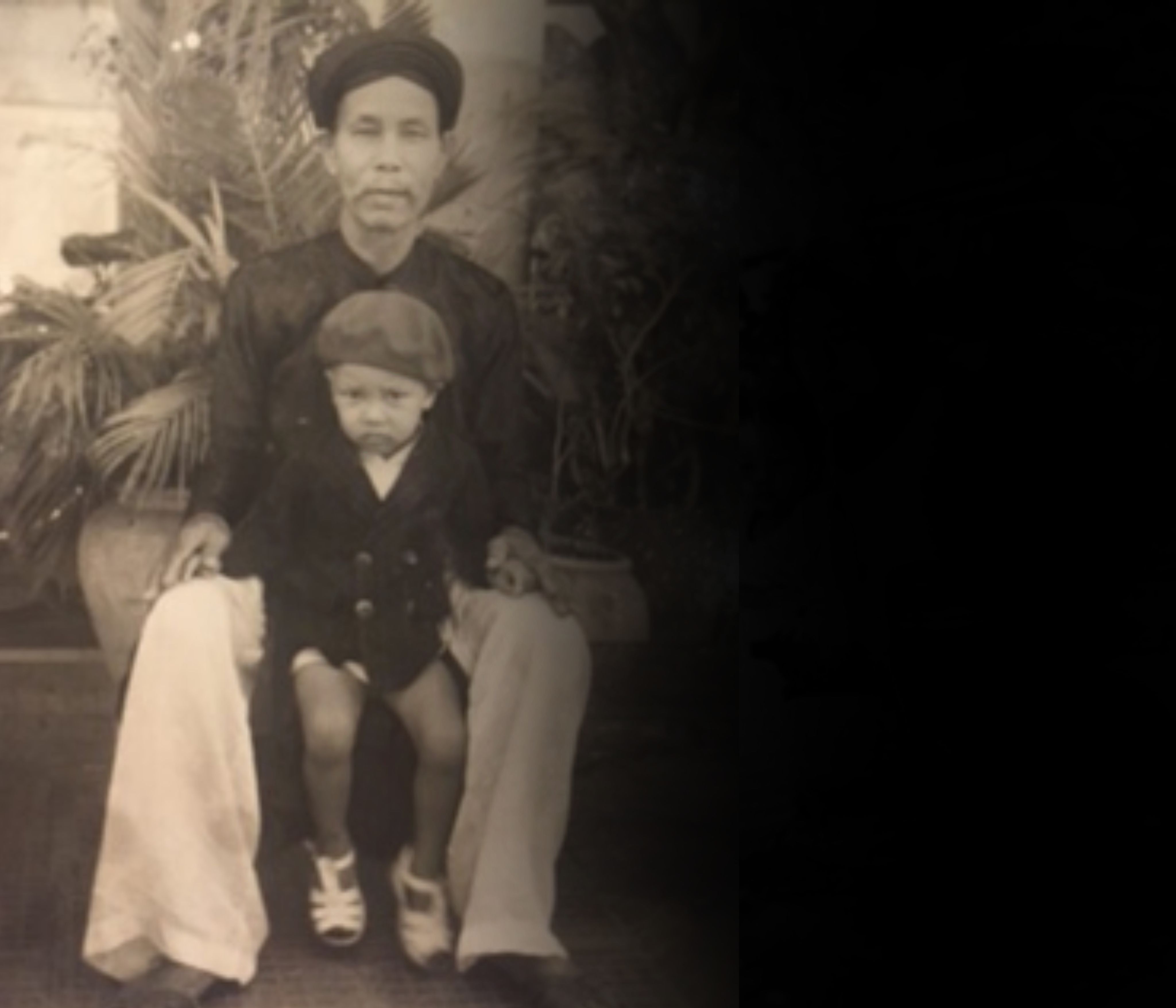
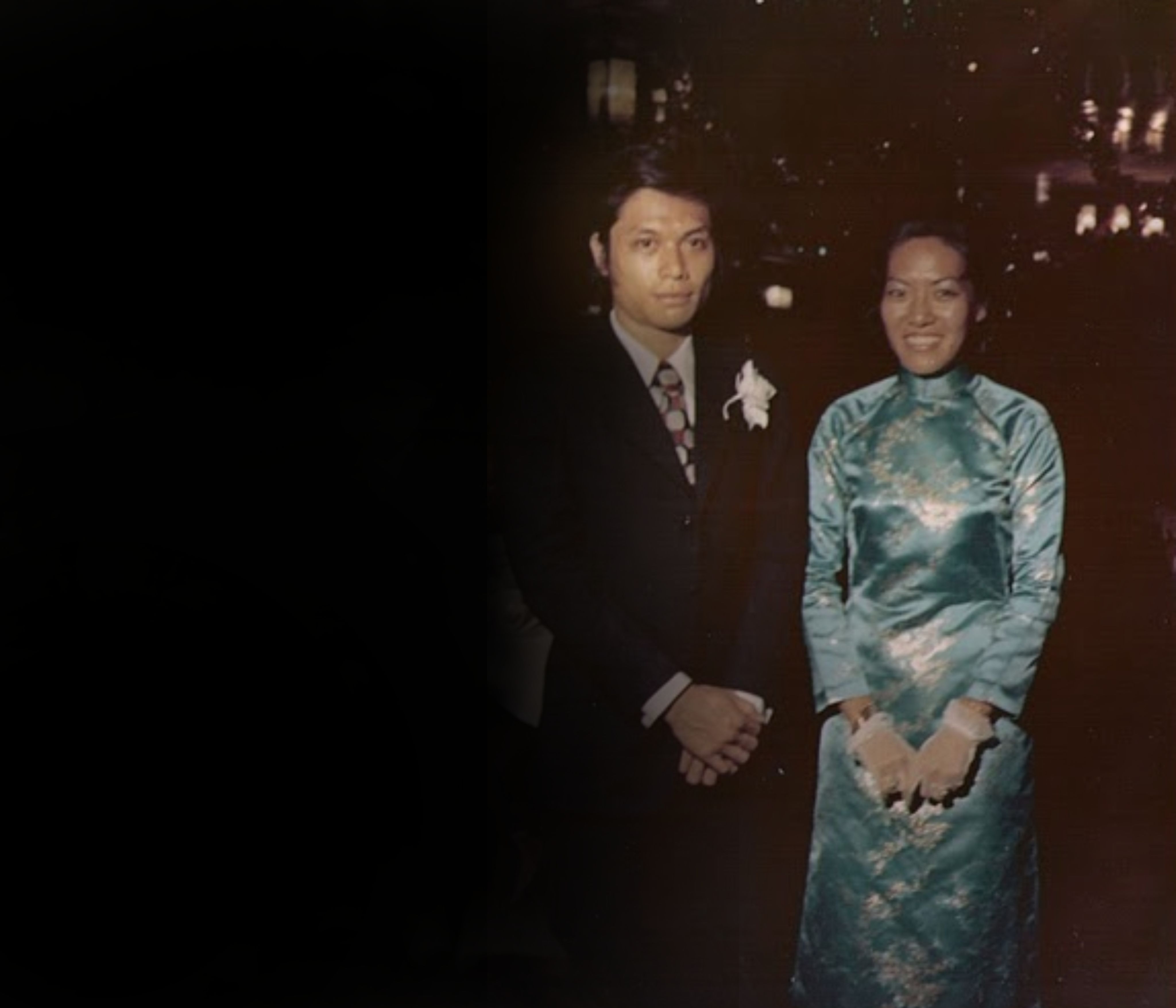
On my journey to the United States, I often found myself staring at the waves of the vast ocean, searching for a sense of peace.
Nghia Vo, My Vietnam, Your Vietnam
Only to one day recognise that I could find that peace in another country, while still holding a deep abiding love and loving for my mother land.
Nghia Vo, My Vietnam, Your Vietnam
That was the deep division that remained within my entire life.
Nghia Vo, My Vietnam, Your Vietnam
Life in the US
My parents did all they could for us to have a normal childhood. In retrospect though, I realise that my sister and I were born only two and four years after the end of the war. This wasn't a long time for my parents to process the trauma of war and resettle in a new country. That trauma was unknowingly in the background of our lives, hidden from us by our parents. I believe they really tried to protect us from the horrors of war, the loss of life, and their country.
I mostly grew up in small towns with very small Asian American populations. We didn't have a strong sense of community growing up, which is unfortunate. It wasn't until I became an adult that I really began to think about what life was like for my parents, how they were assimilating to the US, and ultimately, how that impacted my childhood and perspective.
We moved around a lot while I was growing up as my parents were finding their footing in the US. I was born in Connecticut, but we also lived in Utah, Tennessee, Illinois, and Indiana. I realise I’ve continued this nomadic lifestyle as an adult, perhaps searching, as my father had done, for peace and a sense of home.
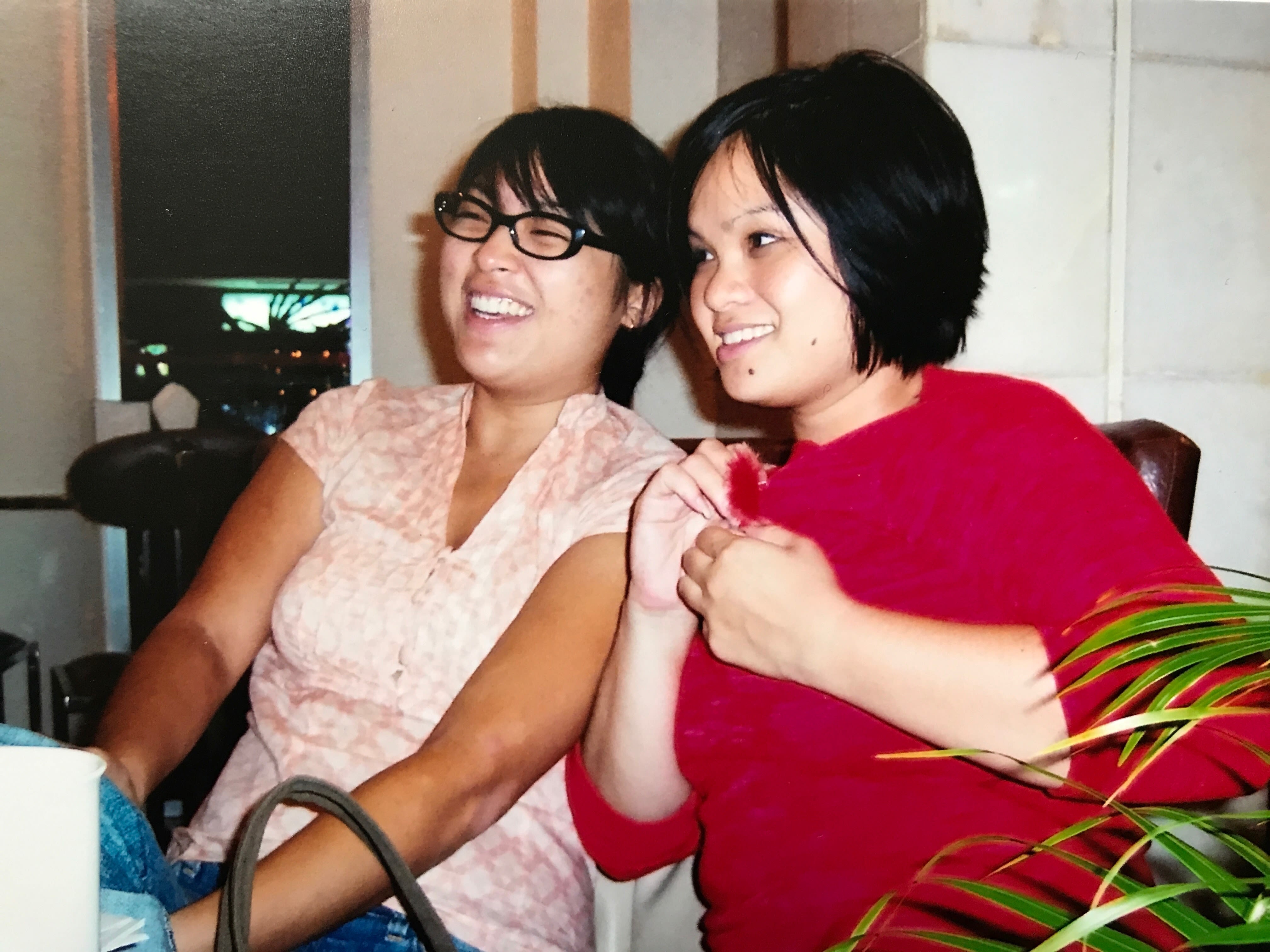
Return to Vietnam
When I graduated high school, I went into medical school as my father had always wanted me to be a doctor. However, I knew by my junior year that medical school was not the right path for me. My real interests were in psychology, marketing, and women's studies. I ultimately chose public health because it was still in the healthcare arena; I thought it would make my father happy while allowing me the flexibility to work abroad.
After graduating I spent a year working for GlaxoSmithKline. I then ended up in Vietnam with an internship at the United Nations Development Programme in Hanoi. Later, I worked for an international advertising agency in Saigon.
I ultimately moved to Vietnam on three separate occasions, and each time was a pivotal moment in my life and career. This first trip to Vietnam was incredibly formative. It was the first time I was living abroad, and the first time being around so many Vietnamese people. In a way, Vietnam opened my eyes to the world and to my family history. I also worked with individuals from all over the world, so the various perspectives and backgrounds were also inspiring to me. I met other Vietnamese Americans who were also curious about their family backgrounds. We were in a similar boat - all searching for an understanding of place, home, and what it meant to be Vietnamese.
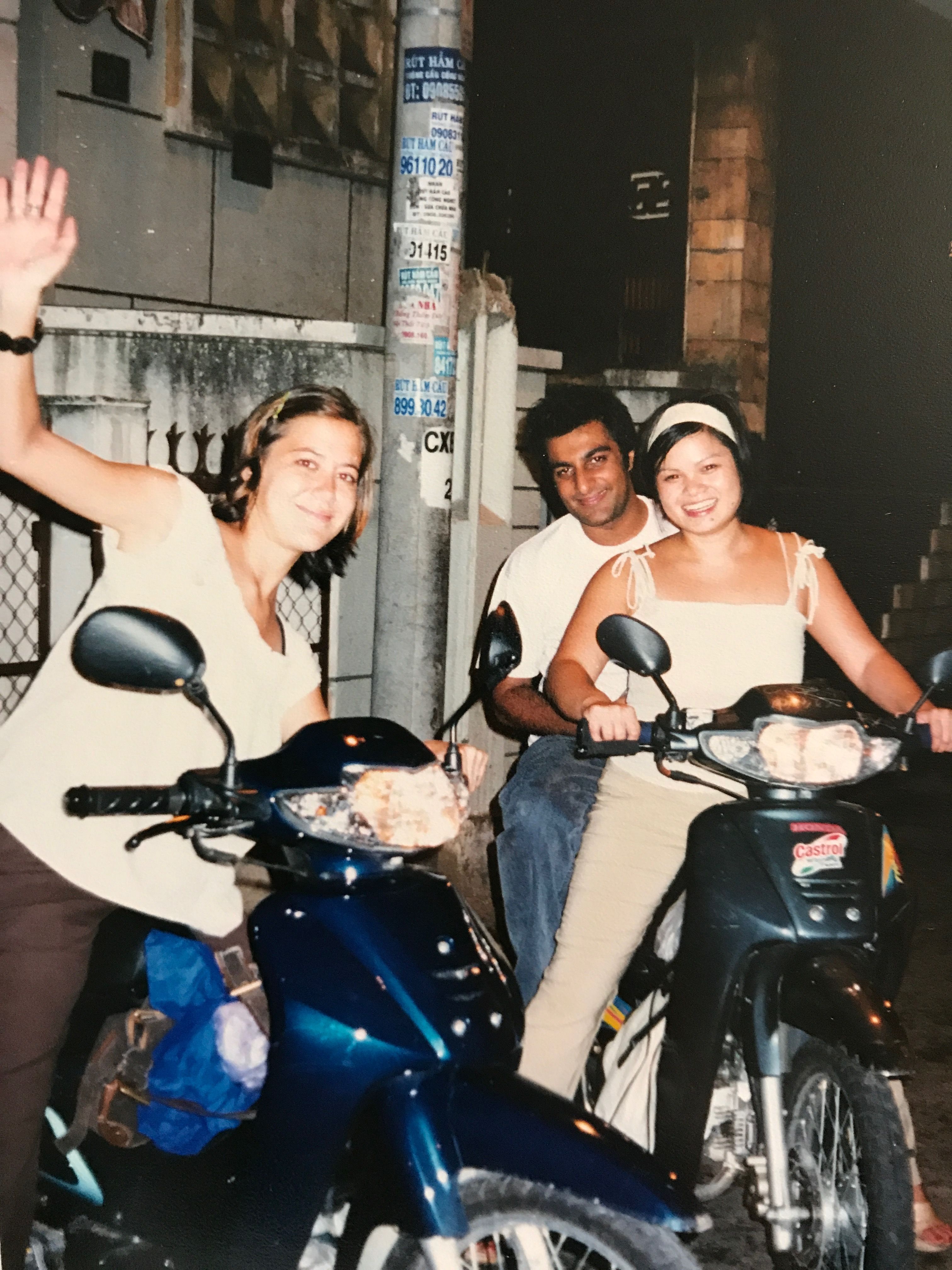
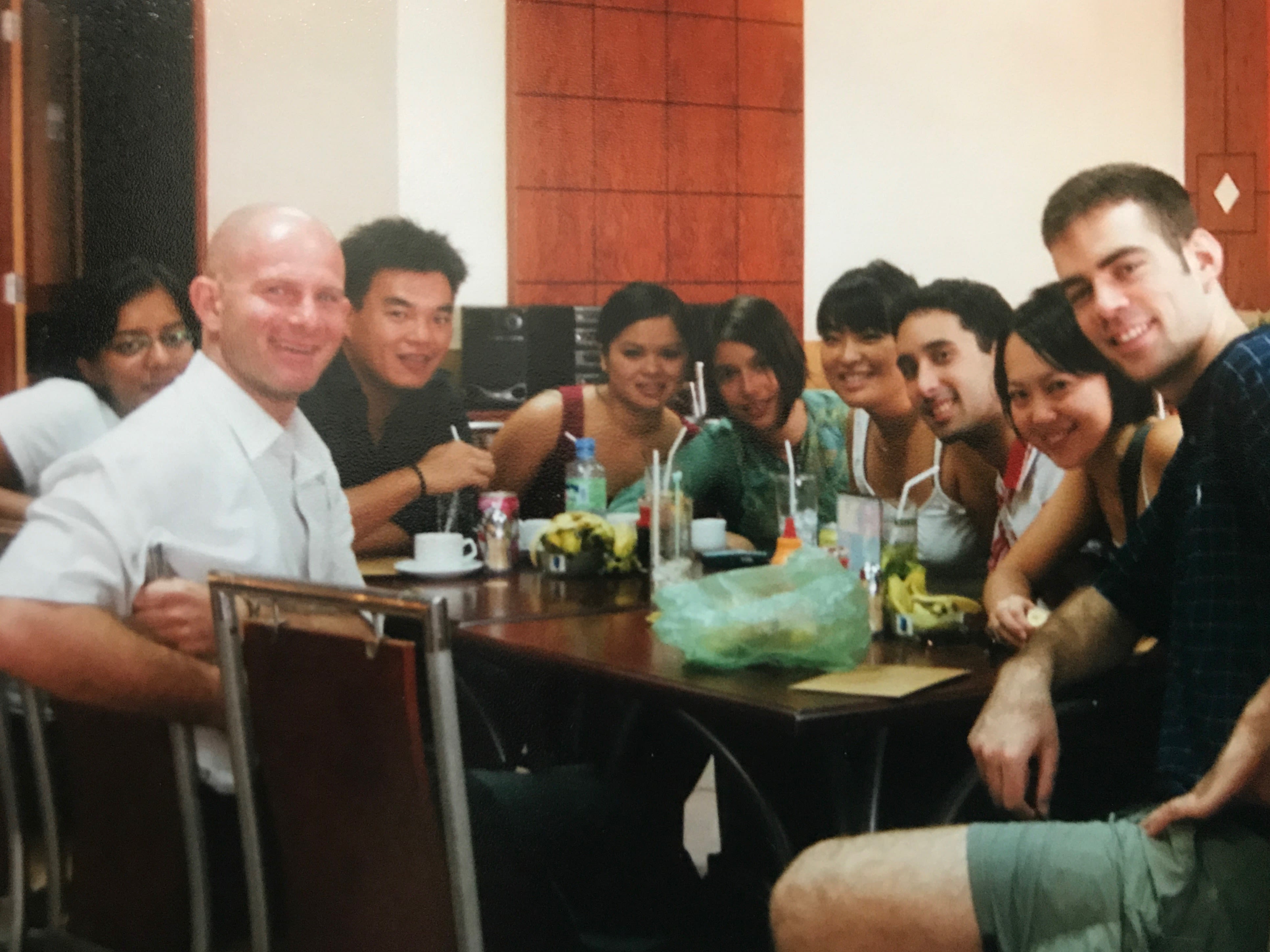
I never imagined that Vietnam would play such a prominent role in my story. It was a distant land, foreign and unfamiliar. Growing up in small towns in the Southeast and Midwest...it was easy to deny my Vietnamese heritage in a sea of white faces.
Christina Vo, My Vietnam, Your Vietnam
In Vietnam I finally came to know my father. Stepping foot on the soil of my motherland, Việt Nam became so much more than a distant land. It became a place that would forever be intertwined with my story.
Christina Vo, My Vietnam, Your Vietnam
Studying at LSE
My life experiences sparked my interest in using communications to create social change, mainly through public awareness campaigns. With that interest, I decided to join the LSE programme because I wanted a combination of international experience, communications, and psychology.
There are so many things to love about LSE, including the opportunity to live in London. I think what I loved most was the people I met from all over the world and the brilliant individuals who were my classmates. They truly enriched my experience there, and many people I met during that time are still friends to this day. I also loved the courses and feel that the programme set me up for an international career. A few years later, I worked as a communications officer for UNICEF in Vietnam and the World Economic Forum in Geneva. I believe that my degree from LSE gave me the necessary skills and credentials for an international career.
My Vietnam, Your Vietnam
One time in Vietnam I told a friend that I wanted to write my father's story. During the pandemic, after I completed my first memoir, I started reflecting on Vietnam again. I realised I wanted to incorporate my story about Vietnam with my father's. Ultimately, that resulted in the book My Vietnam, Your Vietnam. I interwove our two stories to create what I feel is an interesting tapestry of Vietnam from two different generations and perspectives.
My father had already lots of writing experience. Beginning after the death of my mother when I was a teenager, he has now published over 20 books to date on the history of Vietnam. I began writing in my late twenties when I had a deeper desire to keep the memory of my mother alive and process my experiences in Vietnam through writing. I think both of us were driven, in a way, to find healing through our writing.
For me, this brought a sense of completion to my life and a deep gratitude for my parents, as well as a broader connection to the Vietnamese community. I also feel that it's important to talk with our parents about what they have endured and why they might have made certain decisions. It is vital to pass these stories on to future generations and to reconcile questions within ourselves.
Mostly, I feel it is important to feel gratitude for our ancestors and families for opportunities, like attending LSE, that were available to us but not accessible for past generations. I try to live my life with a full cup of gratitude, and so far, this approach has really helped guide and ground my life.
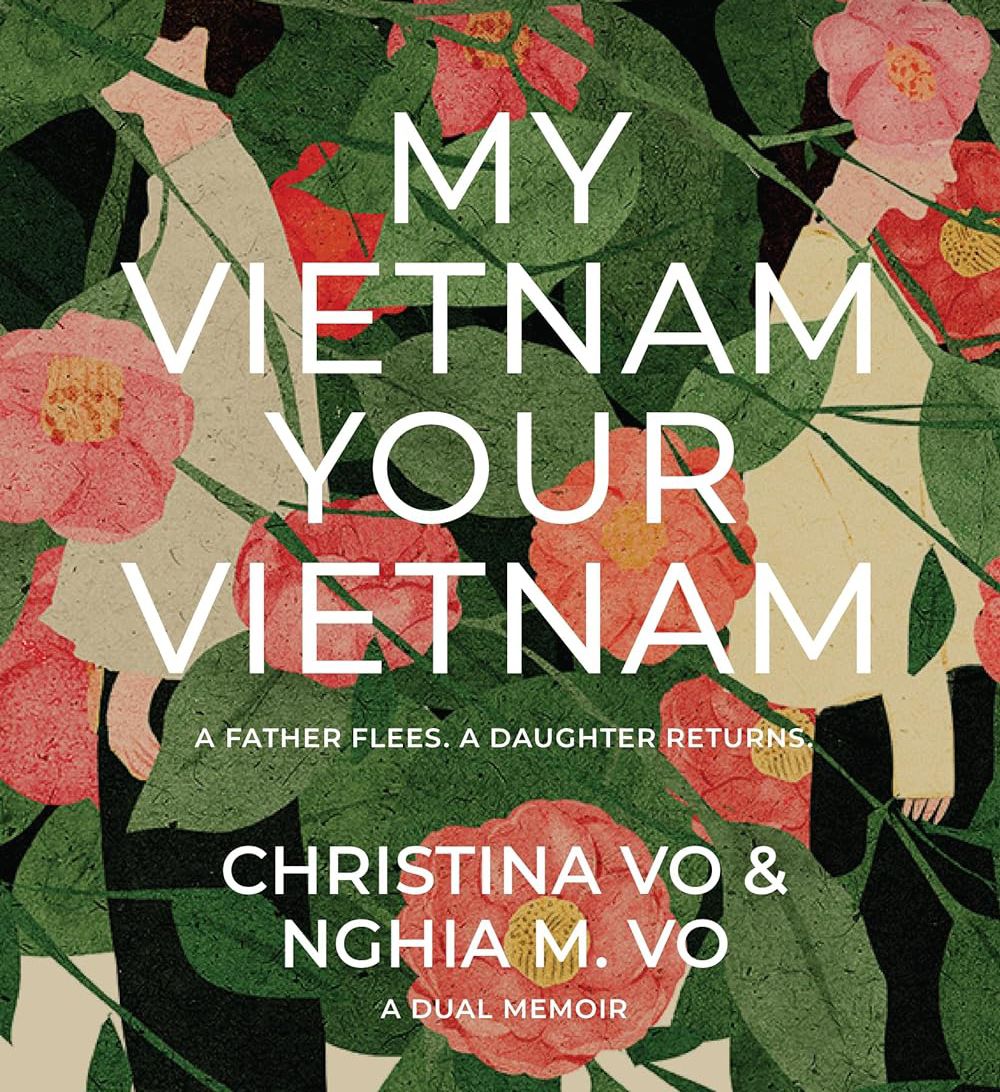
I think it's essential for all of us who come from refugee backgrounds to know our stories and our parents' stories and to understand the struggles of those who came before us.
Christina Vo
Interested in reading LSE alumni life stories?
Explore more alumni profiles here.
